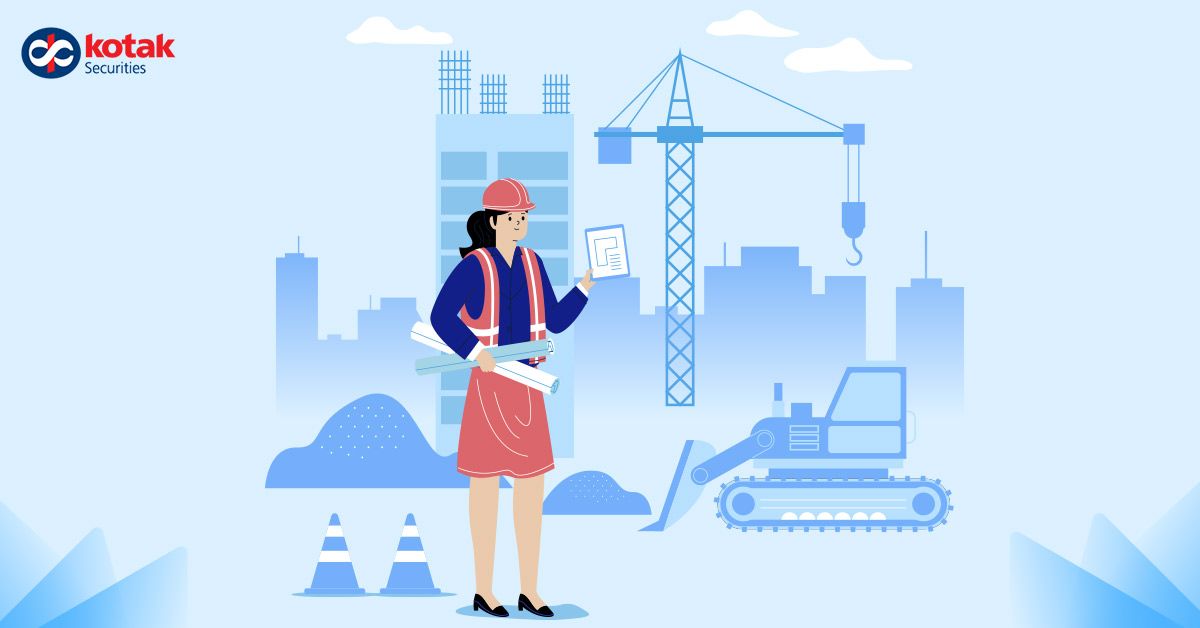NHAI's Historic InvIT Monetization: A New Era for India's Road Infrastructure?
Kotak Insights | Date 05/04/2024
India is on the move!
With a rise in capital expenditure, there's a push to enhance everything from railways and telecommunications to electric vehicle charging infrastructure.
This surge is powered by a combination of government spending, a revival in private investment, and strategic initiatives like the Production Linked Incentive (PLI) Schemes.
But as you know, these big plans need big money.
Traditionally, the government might sell off some assets or seek public funding to gather the necessary capital. But imagine a scenario where it could retain ownership of these assets and still offer investors a sweet deal.
This is where Infrastructure Investment Trusts (InvITs) come into play, offering a novel solution for both the government and the investors.
But why are we talking about InvITs today?
It’s because of a recent monumental InvIT monetization, which marks one of the largest transactions in the history of Indian road sector.
This comes as during the last month, the National Highways Authority of India (NHAI) successfully concluded its third round of fundraising through its InvIT known as NHIT, raising a record sum of over Rs 16,000 crore for 889 kilometers of national highway.
So, let us understand what InvITs are, the significance of NHAI’s fundraising, and how it could impact the economy and related sectors.
So, What’s an InvIT?
An Infrastructure Investment Trust (InvIT) is an investment trust created for investors to buy into infrastructure projects without direct ownership.
Imagine you could invest in big infrastructure projects without actually buying them outright. That's what InvITs offer.
So, investors in an InvIT effectively become part owners of operating assets ranging from tolled highways to any other infrastructure asset that generates an annuity return.
Companies or the government can monetize their assets by transferring them to these trusts. And the trust then package and offer them to market participants for a unit basis ownership.
In essence, InvITs resemble mutual funds but are distinct in that they are traded on stock exchanges.
The Purpose and Advantages of InvITs
InvITs function as a mechanism to raise capital for infrastructure developers, thereby facilitating the development and maintenance of critical assets like roads, bridges, power plants, and communication networks.
By investing in InvITs, investors become beneficiaries of the cash flows generated by the underlying infrastructure assets. This is in the form of income through dividends and interest payouts.
One of the key advantages of InvITs is the potential for steady income streams. Infrastructure assets often generate predictable cash flows due to long-term contracts or toll collection mechanisms, providing investors with a stable source of income.
Additionally, InvITs typically invest in multiple projects across various sectors, reducing the risk associated with individual projects.
NHAI’s Largest InvIT Monetization
Here’s what’s happening in a nutshell…
NHAI’s infrastructure Investment Trust - the National Highways Infra Trust (NHIT) - recently concluded its fund-raising through ‘InvIT Round-3’.
The above round secured financing for national highway stretches totalling 889 kilometers, with an Enterprise Value surpassing Rs 16,000 crore.
Investors subscribed to the InvIT units through a book build process at a cutoff price of Rs 124.14 per unit.
With the investments, NHIT secured approximately Rs 7,272 crore in unit capital from marquee domestic and international investors. Additionally, it obtained debt totaling around Rs 9,000 crore from Indian lenders.
This third monetization round has elevated the total realized value of all InvIT rounds to Rs 26,125 crore, with NHIT now managing a diversified portfolio of 15 operational toll roads across nine states, covering a combined length of approximately 1,525 kilometres.
InvIT as an Investment?
Real estate investment trusts (REITs) have been rocking for years, and it’s time for InvITs to gain the same popularity in India.
Potential investors should understand how InvITs typically generate returns from the asset they own.
This can come from direct asset ownership with earnings flowing from toll collections, power transmission fees, etc.
InvITs can also earn by owning assets in special purpose vehicles (SPVs) which may pay them dividends. Moreover, an InvIT can also generate returns by lending money to an SPV, which will, in turn, own assets, and pay the InvIT interest on the loan.
So, just as any other financial instrument, one needs to evaluate InvITs as per their fundamentals and assess their risk profile before considering investing in them.
With over 20 InvITs currently in India, mostly private, and more expected to emerge, investor interest in this space could see potential growth.
As awareness of InvITs increases, so too does the potential for these instruments to contribute significantly to India's economic growth.
See you with another interesting market story next week.
Stay tuned!
Sources and References:
Disclaimer: The content of this blog is intended solely for educational purposes and should not be regarded as financial advice. It is not produced by the desk of the Kotak Securities Research Team, nor is it a report published by the Kotak Securities Research Team. The securities and assets mentioned serve purely as illustrations only and should not be taken as recommendations for investment. Please note that the information presented is compiled from several secondary sources available on the internet and may change over time. We strongly advise consulting with a qualified financial advisor prior to making any investment decisions. Read the full disclaimer here.






